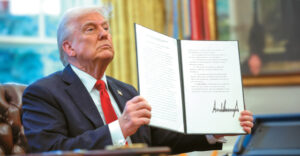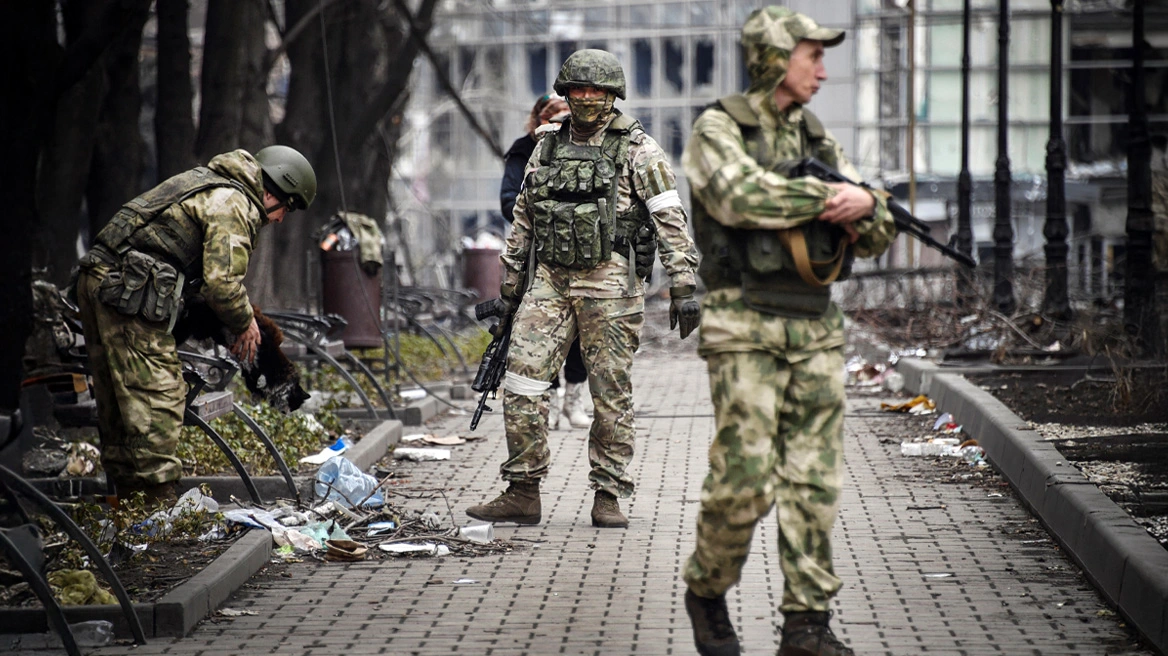The reality of the euphemistic “retaliatory” tariffs on imports from 180 countries announced last Wednesday by US President Donald Trump was worse than investors’ fears, as the hammering stock markets took late in the week showed.
Stock prices plunged around the world on Thursday that intensified on Friday after China responded by imposing tariffs on imports of U.S. goods and controls on exports of some rare earths to the United States. Notably, the decline was largest on Wall Street, with the S&P 500 stock index tumbling about 11% over the weekend and its market capitalization falling by $5.4 trillion, while the Nasdaq index fell 12%. In Europe, the Stoxx 50 index closed down about 8% over the weekend.
In addition, the dollar took a blow and the euro went up about 2%, above $1.10 for some time, although gains were limited on Friday.
The verdict of investors on Trump’s tariff crescendo, with rates restored to pre-World War II levels, was clear: All economies will be hurt for the foreseeable future, but the biggest victim will be the U.S. economy itself, which risks a recession from a global trade war.
This is, perhaps, one of the greatest paradoxes in world annals – the government of the world’s largest economy implementing a policy, ignoring all warnings of the suffering it will cause to itself and to countries that have been its long-time allies.
The estimates of major US banks and other institutions are similar, with JP Morgan bank predicting a 0.3 per cent recession for the US economy this year from 1.3 per cent growth before Trump’s announcements and unemployment soaring to 5.3 per cent. There are also growth concerns for the eurozone and Barclays believes there is a risk of a recession in the second half of 2025.
A flat rate of 20% has been imposed on European Union products, which therefore applies to Greek products. Greek exports to the US are low, at just 4.8% of the country’s total exports, and are mainly agricultural products, fuel, steel and aluminium. The direct impact, therefore, on the Greek economy will be small, but the indirect impact will be more significant, due to the fact that the economies of key export markets for Greek products, such as Germany, Italy and other European countries, will be negatively affected.
Trump’s sweeping tariffs were imposed horizontally and in an arbitrary manner that has provoked huge reactions from America’s traditional allies and adversaries. They start at 10% for countries with which the US has a surplus or balanced bilateral trade balance and escalate according to the size of the deficit it has with other countries as a percentage of imports from them. China was charged 34% tariffs, but effectively 54% if you include the 20% announced last month, while even higher rates were announced for other countries, even poor ones.
The formula for calculating the tariffs has nothing to do with redressing alleged injustices against the US and imposing “retaliatory” tariffs on its part that would restore a level playing field. Rather, it gave the impression that it was used to impose a new world order on trade.
The tariffs could theoretically be reviewed and mitigated through bilateral negotiations. President Trump referred to this prospect, saying he could discuss it if there was “some extraordinary offer” from other countries. But that wording alone shows that America wants major concessions that other economies would be unlikely to accept.
The US’s tough stance has already provoked a harsh response from China, with a 34% tariff on US imports from April 10, resulting in an escalation of the trade war that will lead to even worse developments for the whole world and increase the chances of a recession. On the EU side, too, Commission President Ursula von der Leyen stressed that there would be a strong EU response with countermeasures if there is no room for a negotiated compromise solution.
Ask me anything
Explore related questions





